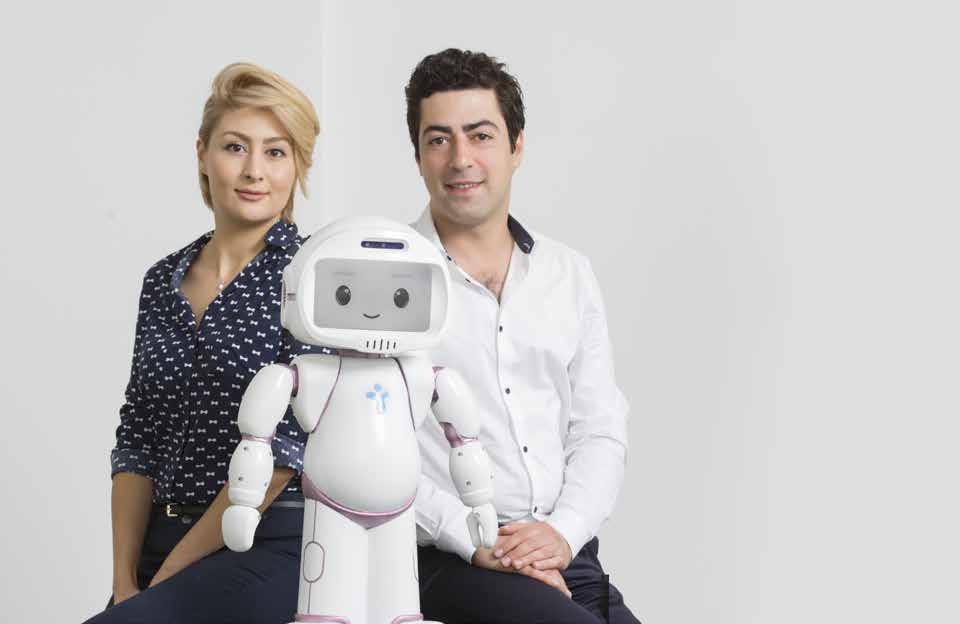
2 minute read
Meet LuxAI
from SnT Highlights 2019
by Uni.lu_SnT
LuxAI is a Luxembourg-based start-up that builds expressive, humanoid social robots used as a training tool for children with autism. Dr Pouyan Ziafati and Dr Aida Nazarikhorram founded the company after Pouyan finished his PhD at SnT.
How did LuxAI get started?
Dr Pouyan Ziafati: In 2011, I began my PhD here at SnT. I was working on a project called ‘Programming Cognitive Robots’, and every day I would come home and talk with Aida, my wife, about my day.
Dr Aida Nazarikhorram: Originally I am a medical doctor, but at the time I was working as a product manager at a local start-up. Thanks to this exposure, when talking with Pouyan I realised that we had huge potential for interdisciplinary innovation. After some market research we realised that a robot to support interventions for autistic children would be very valuable.
What role has SnT played in your success?
Dr Pouyan Ziafati: SnT was crucial when we got started, as their support made it possible for us to win an FNR Proof-ofConcept Grant. This allowed us to begin conducting studies to test our product in a therapy setting. We worked with social scientists at the University of Luxembourg, as well as AI experts at SnT to conduct essential validation studies that really helped us hit the ground running.
Dr Aida Nazarikhorram: We continue to flourish as one of the first SnT spin-offs because of the continued confidence the centre has in our work. It has been wonderful to have the support of the academic team as we bring research out of the laboratory and into the real world.
What are your plans for the future?
Dr Pouyan Ziafati: 2019 was a very good year for us as we completed all the required product certifications we needed to go into mass production and international product shipment. We now have customers from all around the world, from the US to China, and to meet the growing global demand for our robots we need to begin producing them in larger quantities.
Dr Aida Nazarikhorram: Now that hundreds of centres across the world are using our QTrobot on a daily basis we want to develop our system’s ability to give therapists and caregivers actionable data. It is important for the person working with a child to know how that child is progressing to determine a personalised training plan •









